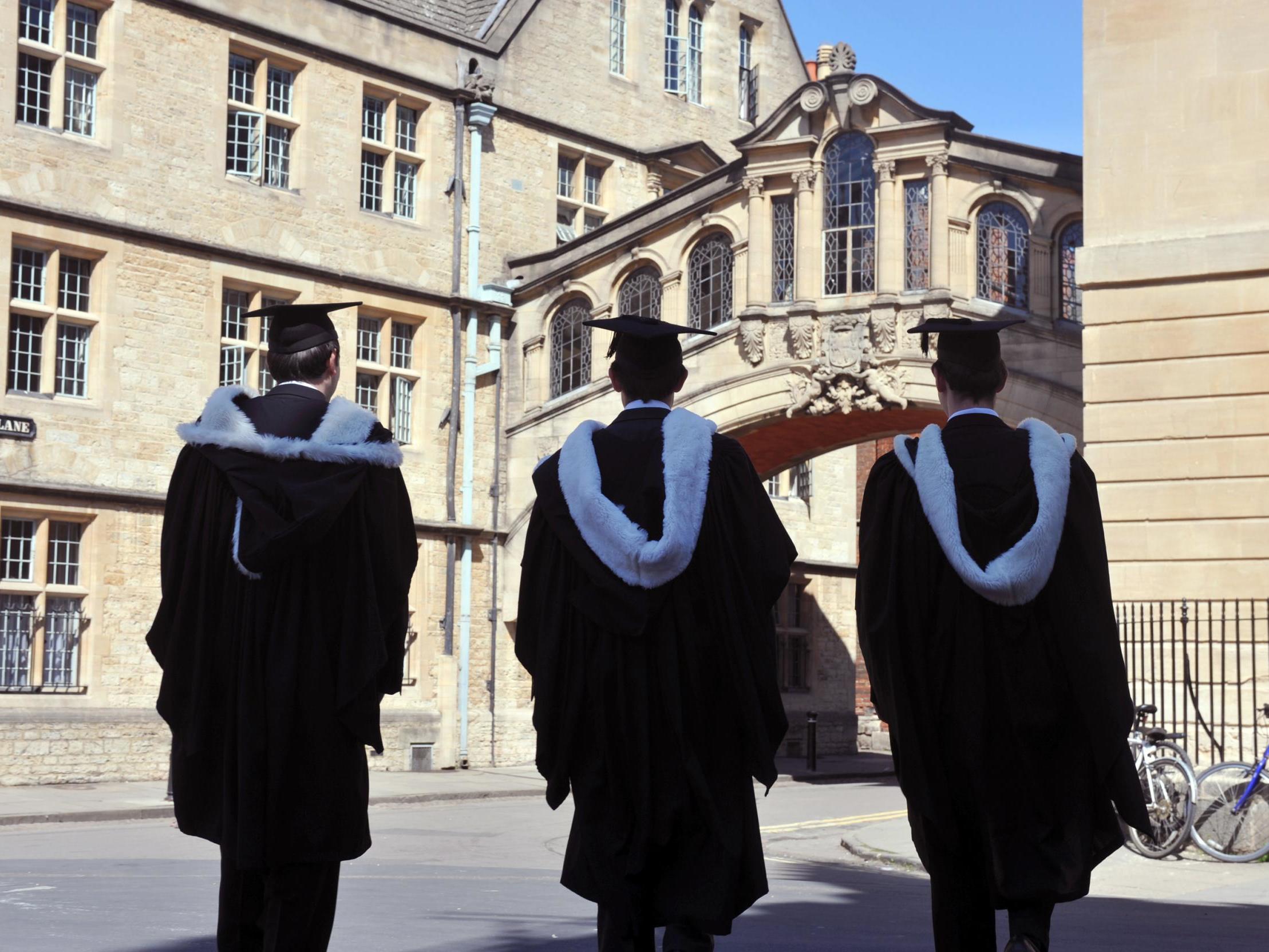Black students with mental health issues being ‘failed’ by university system, regulator warns
Focusing on what ‘dead white men’ think can be damaging to black students, professor claims

Your support helps us to tell the story
From reproductive rights to climate change to Big Tech, The Independent is on the ground when the story is developing. Whether it's investigating the financials of Elon Musk's pro-Trump PAC or producing our latest documentary, 'The A Word', which shines a light on the American women fighting for reproductive rights, we know how important it is to parse out the facts from the messaging.
At such a critical moment in US history, we need reporters on the ground. Your donation allows us to keep sending journalists to speak to both sides of the story.
The Independent is trusted by Americans across the entire political spectrum. And unlike many other quality news outlets, we choose not to lock Americans out of our reporting and analysis with paywalls. We believe quality journalism should be available to everyone, paid for by those who can afford it.
Your support makes all the difference.Black students with mental health conditions are being “failed” by the university system, the regulator warns, as figures show they are much more likely to drop out and attain lower class degrees.
The Office for Students (OfS) has said the large gaps in attainment and continuation rates between black university students with a mental health problem and their white peers are a “concern”.
New figures from the OfS show that this group is also significantly less likely to get a graduate-level job.
It comes as universities are under fire for not doing enough to boost diversity on campus and for not providing sufficient mental health support for students.
In 2017-18, only just over half (53 per cent) of black students with a mental health condition attained a first or 2.1 – which is 24 percentage points less than all students with mental health issues (77 per cent).
Meanwhile, in 2016-17, only 77 per cent of black students with mental health problems continued with their degree to their second year, compared to 87 per cent of all students with mental health issues.
“These gaps show that black students with mental health conditions are being failed throughout the student cycle,” the OfS report warns.
It adds: “The poorer outcomes of these students suggest that the overlap of multiple identities can have a drastic effect on students’ experience at university.”
Speaking at a conference on Monday, Kehinde Andrews, professor of black studies at Birmingham City University, suggested that decolonising the curriculum could help close the attainment gap of black students and increase engagement.
He said: “One of the things students report regularly is actually you being taught Eurocentric knowledge, about what dead white men think, isn’t just alienating to you. It’s actually damaging to you because it’s telling you you cannot think.”
Professor Andrews encouraged sector leaders to “flip it” and show students that there’s a different way to think and “there’s different sources of knowledge that you can get your information from”.
In the report from the OfS, the regulator calls on universities “to pay heed” to the different experiences of students with mental health conditions and “put in place tailored support to close these gaps.”
Nicola Dandridge, chief executive of the OfS, said having a mental health condition should not be a “barrier to success” and yet for many students it is “seriously impacting their ability to succeed”.
She added: “Mental health and wellbeing are complex issues and there is no simple solution.
“There is already a lot of good work being done to support student welfare but, as this data highlights, there is a need for that work to take account of how mental health issues relate to other characteristics.”
Fope Olaleye, black students’ officer at the National Union of Students, said: “It’s disheartening to see black students are being failed by the system, with student mental health in general so clearly in the spotlight: it’s time for a joined-up conversation between policy-makers and service providers to tackle this is a way that best addresses this problem.”
A Universities UK spokesperson said: “Mental health is a priority for university leaders. UUK’s StepChange provides the framework to implement a whole organisation approach to enable all students and staff to thrive and to ensure that those who need it get access to appropriate support.
“We recognise that students have different rates and experiences of mental health problems and encourage our members to work closely with diverse student voices to provide access to student support services that are culturally appropriate, including working with the NHS.
“UUK has asked universities to take action to close the Bame student attainment gap and we have provided specific recommendations on how to ensure Bame students are given the best chance of success – including asking institutions to enhance their efforts to develop racially diverse and inclusive environments to promote a sense of belonging.”
Join our commenting forum
Join thought-provoking conversations, follow other Independent readers and see their replies
Comments